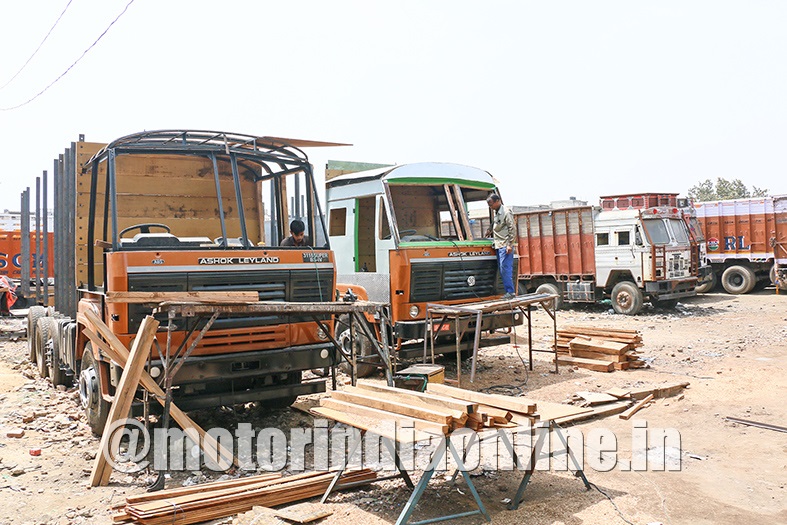‘So to Speak’ with Dhiyanesh Ravichandran
In this election season, some moral ponderation over elites and masses within the trucking industry.
Italian political scientist Gaetano Mosca once said: “Elites are an organised minority and masses are an unorganised majority”. The masses-elite duality is the norm of any modern society, in which industries and markets are an integral part. You must have come across some informed people sharing their resentment over Indian trucking industry being largely ‘unorganised’. It’s a sign of an elitist culture of identifying something large by negating something else that is relatively small. It’s part of our tradition and legacy – the concept of “Na Ithi”, which means ‘that which is not’.
It is indeed the so-called ‘unorganised’ chunk that accounts for the largest share of trucking services on offer, direct and indirect taxes to governments, and ultimately that part of national income arising from the entire trucking industry. It is such a magnanimous section that supports several million jobs and entrepreneurial opportunities, featuring multiple stakeholders like truck owners (almost 75 per cent of total fleet is with those who own up to just 5 trucks), booking agents and brokers, drivers and helpers, mechanics and other skilled workers, load men, spares dealers and retailers, and so on.
By the way, what makes a trucking business ‘organised’ is yet another debate, that may open a pandora’s box of dubious distinctions and parameters. It’s not like all truckers with just few vehicles are not running their businesses in a disciplined and efficient manner, nor mere digitization of processes and payments would ensure optimisation of fleet productivity. Do all registered, corporate trucking entities offer uniform standard of terms and services, since they are called as ‘formal’? There can be no standard definition or check-lists in this regard, and terminologies like ‘unorganised’ or ‘informal’ are concept derived from western experiences, which may not be appropriate in our context.
Thus, it is important to pay attention to the nature and role of this so-called ‘unorganised’ section. The focus of policy reforms and discussions involving industry-led forums and transport experts are typically on the corporate sector involving big transport firms, ‘neo-transporters’, aggregators, and so on. These big boys are an essential part of lobby network at higher levels, as they possess the adequate economic and social capital to seize power sources in the industry and beyond. New financial instruments are being introduced every day to fund them, and with free capital flows, they can assure any sort of technological transformation and organisational shake-up in trucking. How sustainable are they to the entire industry is a million dollar question.
As Mosca asserts, these industry elites have intellectual and material superiority that is highly organised and influential. On the contrary, the medium, small-scale and traditional stakeholders hardly have any effective platforms to express their concerns and aspirations to policy-makers, forget about influencing reforms to their advantage. The transport unions are largely fragmented, lacking nation-wide consensus on critical issues, and fail to represent diverse aspirations that are quite natural in such heterogeneity. Hard to blame them either, since they lack those essential ‘capitals’ and devote most of their energy in ensuring their everyday sustenance.
My recent interaction with trucking folks at Sanjay Gandhi Transport Nagar (STGN), Delhi was quite harrowing. Market demand for short-term contractual or ‘hire and haul’ trucking has come down over 60 per cent in the past couple of years, especially since demonetisation and GST, and the parallel economy collapsed once and for all, they say. Demand has now shifted to large players due to predatory pricing strategies, resulting in higher idle times for these truckers, impacting livelihood of people involved. Moreover, rising fuel prices, insurance premiums, toll costs, and middling cash crunch has pushed them down further. Even, the revised axle load norms have turned out to be disastrous for these transporters due to reduced freight rates in the market. And yet, nobody in the industry and policy circles seems to care!
Do they at least find the ongoing elections as a platform of last resort to vent their resentment? STGN folks are clear that no political party is interested in their livelihood issues, let alone establishing fair play in the trucking industry. Their lives are swinging between despair and hope. Any development or transformation must be people-centric, favouring the masses. Growth has to be inclusive, else it may just turn out to be an ailing inflammation.
I’d love to know what you think, email your views to dhiyanesh@motorindiaonline.in
